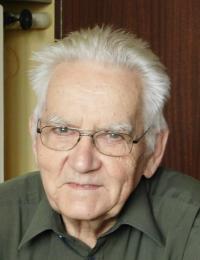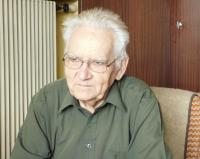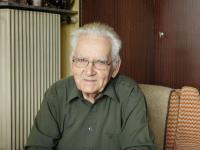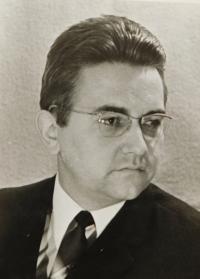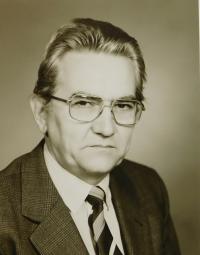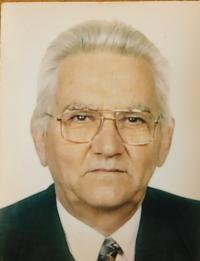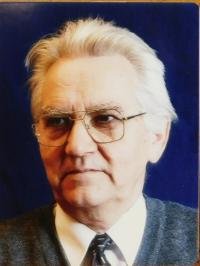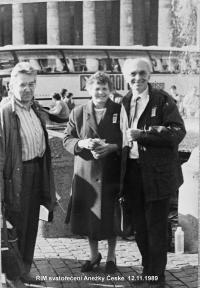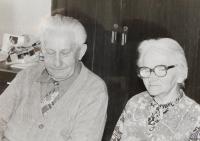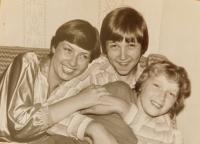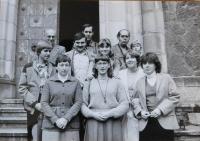One must not let oneself become blinded just by material wellbeing

Stáhnout obrázek
Václav Dvořák was born on November 29, 1934. He spent his childhood and youth in Ústí nad Orlicí. His uncle Stanislav Langr was executed by the Nazis during WWII for his resistance activity. After marrying Helena Strakerlová in 1959, the couple moved to Jeseník where they became involved in the life of the local Catholic congregation. Among other, Václav was attending prayer meetings of the charismatic movement in the home of Jiří Šnajdr in Mikulovice. Jiří Šnajdr was eventually tried for that in 1983 and sentenced to ten months of imprisonment with suspended sentence for the criminal offence of disrupting the state authority over churches and religious associations. Václav‘s wife was dismissed from her job in the army sanatorium in the Jeseník spa for her participation in these prayer meetings. Václav Dvořák became involved in the Catholic dissent as well. He was distributing samizdat such as Information about the Church or later the magazine Velehrad. He signed several petitions and he and his wife were attending seminars in other people‘s homes. After the fall of the communist regime he was co-opted into the municipal authority in Jeseník and after the first free election he became the vice-mayor of the town. Václav is credited with the restoration of the pilgrimage church of Virgin Mary the Helper (Maria Hilf) in Zlaté Hory in the border region. In 2017 he and his wife were still living in Jeseník.
